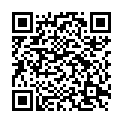|
|
|
| Module code: DFBLG301 |
|
|
4U (4 hours per week) |
|
4 |
| Semester: 3 |
| Mandatory course: yes |
Language of instruction:
German |
Assessment:
Written exam 90 min. (50%) and tests over the course of the semester (50%)
[updated 30.04.2025]
|
DFBBW-340 (P620-0001) Business Administration, Bachelor, ASPO 01.10.2013
, semester 3, mandatory course
DFBTO301 (P620-0514) International Tourism Management, Bachelor, ASPO 01.10.2018
, semester 3, mandatory course
DFITM-301 (P620-0458) International Tourism Management, Bachelor, ASPO 01.10.2020
, semester 3, mandatory course
DFBLG301 (P620-0318) International Logistics Management, Bachelor, ASPO 01.10.2018
, semester 3, mandatory course
DFILM-301 (P620-0405) International Logistics Management, Bachelor, ASPO 01.10.2019
, semester 3, mandatory course
DFILM-301 (P620-0405) International Logistics Management, Bachelor, ASPO 01.10.2022
, semester 3, mandatory course
DFBBW-340 (P620-0001) German-French and International Management, Bachelor, ASPO 01.10.2018
, semester 3, mandatory course
DFIM-301 (P620-0001) German-French and International Management, Bachelor, ASPO 01.10.2019
, semester 3, mandatory course
DFBLG301 (P620-0318) Logistics, Bachelor, ASPO 01.10.2013
, semester 3, mandatory course
|
60 class hours (= 45 clock hours) over a 15-week period.
The total student study time is 120 hours (equivalent to 4 ECTS credits).
There are therefore 75 hours available for class preparation and follow-up work and exam preparation.
|
Recommended prerequisites (modules):
None.
|
Recommended as prerequisite for:
|
Module coordinator:
Dr. Julia Frisch |
Lecturer: Dr. Julia Frisch
[updated 01.10.2017]
|
Learning outcomes:
The initial level is B2.
After successfully completing this module, students will:
- be able to present their own point of view on everyday and professionally relevant topics orally and in writing
- be able to read, describe and evaluate graphics and tables and create their own topic-related tables/charts
- be able to understand (adapted) specialist texts from the range of topics in their field of study
- have improved their strategies and methods for compiling and summarizing important information in a presentation, report or specialist lecture in English
- have built and expanded their subject-specific vocabulary and consolidated it through oral and written use
[updated 30.04.2025]
|
Module content:
- (inter)culturally interesting and current topics geared to the target language countries
- Current topics related to the studentsí lectures
- Specialized vocabulary within the context of the topics (subject areas) discussed
- Grammatical constructions such as participial constructions, noun-verb-conjunctions, passive and passive replacement forms
- Reading moderately difficult newspaper and magazine articles in the German press
- Reading and listening comprehension skills.
- Language for business correspondence and telephone calls
[updated 30.04.2025]
|
Teaching methods/Media:
- Presentations by the lecturer
- Plenary and group discussions
- Group work phases where students tackle specific tasks
- Multimedia language lab
- Student presentations
[updated 25.11.2020]
|
Recommended or required reading:
Multimedia-supported teaching and learning material to intensify teaching will be provided in the course and via Moodle.
[updated 30.04.2025]
|

